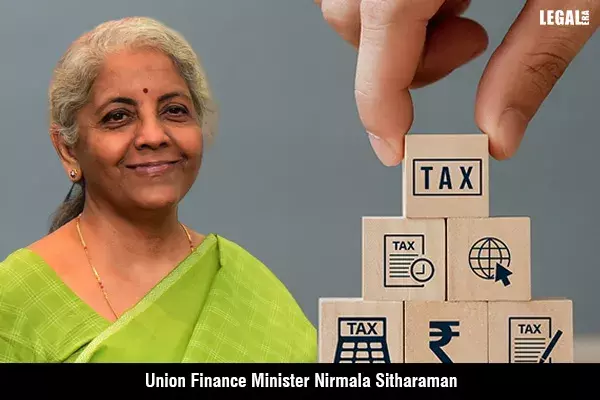Nirmala Sitharaman Imposes 12.5 Percent Tax Rate On Long-Term Gains: Union Budget 2024
While seeking to rationalize capital gains, Union Finance Minister Nirmala Sitharaman has imposed a 20 percent tax rate;

Nirmala Sitharaman Imposes 12.5 Percent Tax Rate On Long-Term Gains: Union Budget 2024
While seeking to rationalize capital gains, Union Finance Minister Nirmala Sitharaman has imposed a 20 percent tax rate on short-term capital gains (STCG) of financial assets and 12.5 percent on long-term capital gains (LTCG) on all financial and non-financial assets.
She announced an increase in the exemption limit of capital gains on financial assets to 1.25 lakh per year.
Commenting on the move, Ankit Jain, a partner at Ved Jain & Associates said, "The government expressed concern about the rapid growth of the Indian stock market, particularly in terms of valuations. The adjustment in long-term and short-term gains addresses these concerns. This will have long-term consequences. The higher LTCG tax rate may discourage long-term investments in equity markets, as the after-tax returns would be lower. This could affect the overall growth and liquidity of the market."
Jain added, "The LTCG on securities was previously eliminated when the government introduced the Securities Transaction Tax (STT) in its place. Now, investors have to deal with the STT and capital gains tax, which seems like the government is reneging on its previous commitments."
He further expressed, "The Finance Minister did not announce any grandfathering of gains accumulated to date. This means the higher rate of 12.5 percent will apply to all capital gains accrued over the years, not just from now onwards, effectively increasing an investor's tax burden by 20 percent. The government should act fairly and allow grandfathering of capital gains accumulated so far."
The government has stated that listed financial assets (held for over a year) would be classified as long-term, while unlisted financial assets and all non-financial assets would have to be held for at least two years to be classified as long-term.
However, irrespective of the holding period, the unlisted bonds and debentures, debt mutual funds and market-linked debentures, will attract tax on capital gains at applicable rates.
Sharing his thoughts, Kunal Savani, the partner at Cyril Amarchand Mangaldas said, "While the government's stand on increasing the long-term capital gains on listed shares is to simplify the capital gains tax regime, it would send a negative message to the investor community, especially the non-residents. Globally, many jurisdictions don't tax capital gains on the sale of shares, as companies already pay corporate tax on their income. We must keep our tax regime consistent and competitive to attract investment."
He added, "Until 2018, LTCGs on sale of listed shares were exempt from tax. Later, 10 percent tax was introduced and now it has been increased to 12.5 percent. The government is contemplating a comprehensive review of the Income Tax Act, 1961. Hence, it should have not increased the capital gains tax rates."


